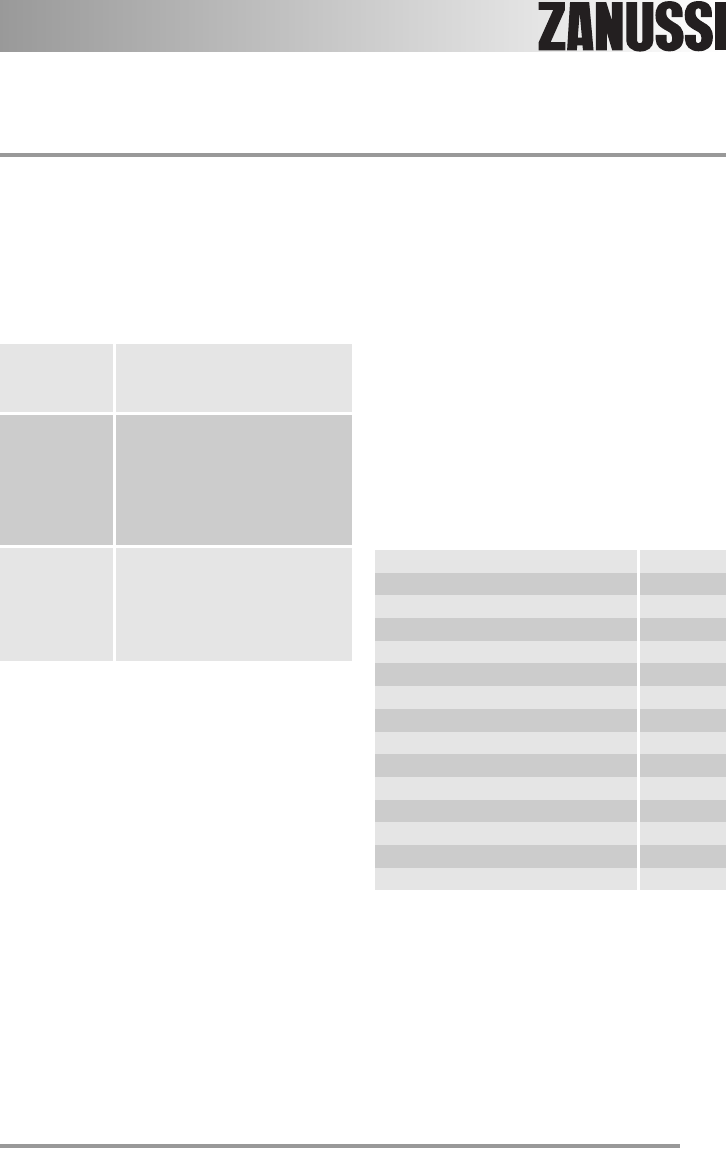
Washing hints
Sorting the laundry
Follow the wash code symbols on each
garment label and the manufacturer’s washing
instructions. Sort the laundry as follows: whites,
coloureds, synthetics, delicates, woollens.
Temperatures
Before loading the laundry
Never wash whites and coloureds together.
Whites may lose their «whiteness» in the
wash.
New coloured items may run in the first wash;
they should therefore be washed separately
the first time.
Make sure that no metal objects are left in
the laundry (e.g. hair clips, safety pins,
pins). Button up pillowcases, close zip
fasteners, hooks and poppers. Tie any belts
or long tapes.
Remove persistent stains before washing.
Rub particularly soiled areas with a special
detergent or detergent paste.
Treat curtains with special care. Remove hooks
or tie them up in a bag or net.
Maximum loads
Recommended loads are indicated in the
programme charts.
General rules:
Cotton, linen: drum full but not too tightly
packed;
Synthetics: drum no more than half full;
Delicate fabrics and woollens: drum no more
than one third full.
Washing a maximum load makes the most
efficient use of water and energy.
For heavily soiled laundry, reduce the load
size.
Laundry weights
The following weights are indicative:
90° or 95°
for normally soiled white cottons
and linen (e.g. tea cloths, towels,
tablecloths, sheets...)
50°/60°
for normally soiled, colour fast
garments (e.g. shirts, night
dresses, pyjamas....) in linen,
cotton or synthetic fibres and for
lightly soiled white cotton (e.g.
underwear).
30°-40°
cold
for delicate items (e.g. net
curtains), mixed laundry including
synthetic fibres and woollens
bearing the label «pure new wool,
machine washable, non-shrink».
1200 gbathrobe
100 gnapkin
700 gquilt cover
500 gsheet
200 gpillow case
250 gtablecloth
200 gtowelling towel
100 gtea cloth
200 gnight dress
100 gladies’ briefs
600 gman’s work shirt
200 gman’s shirt
500 gman’s pyjamas
100 gblouse
100 gmen’s underpants
13
132964330.qxd 19/06/2008 14.41 Pagina 13


















